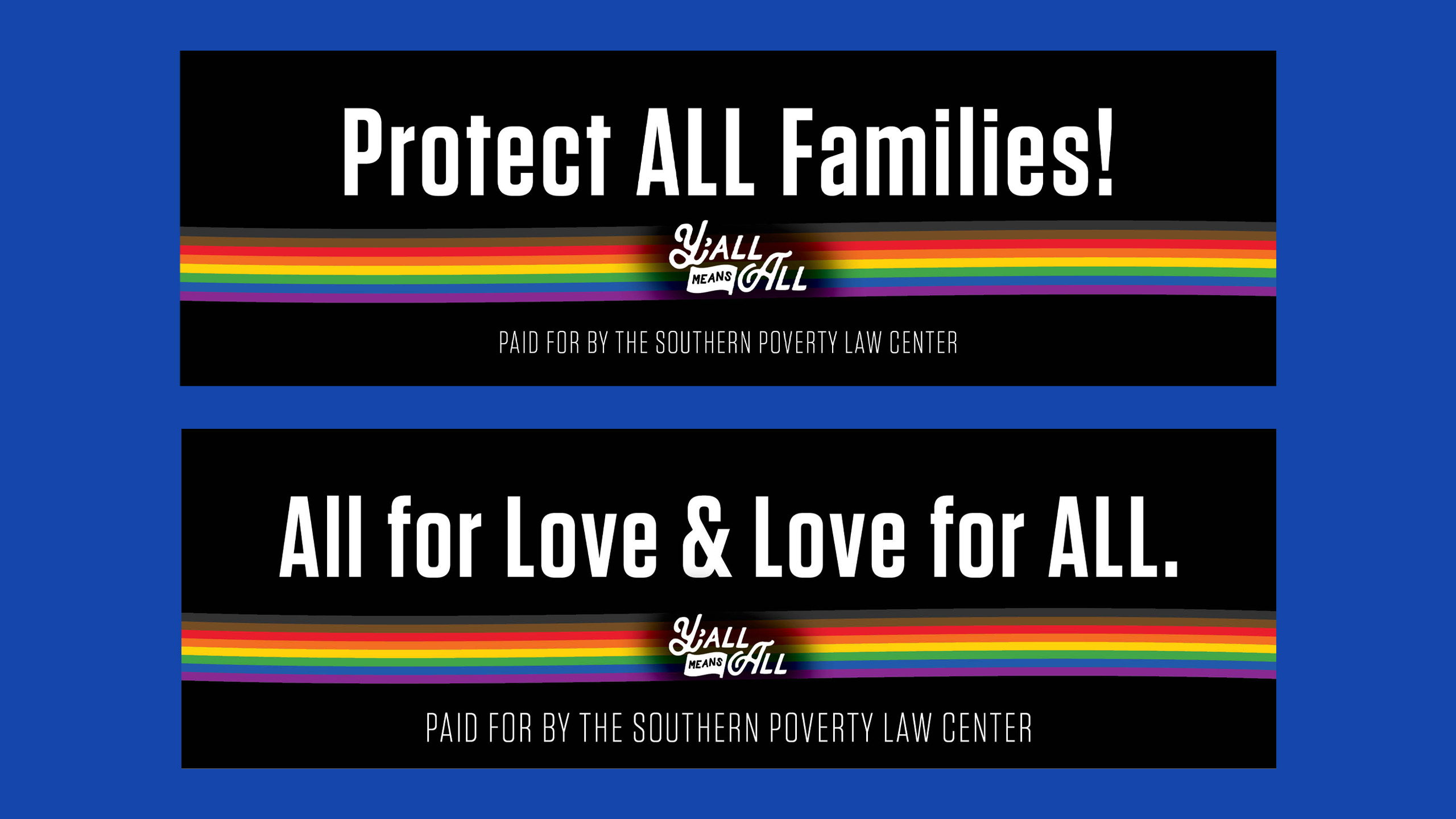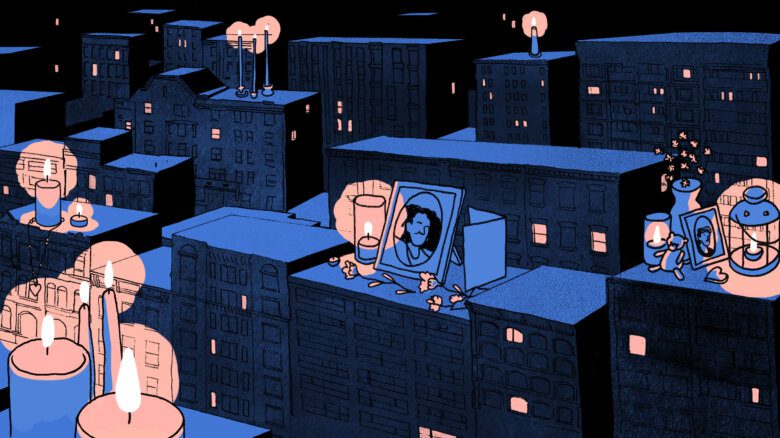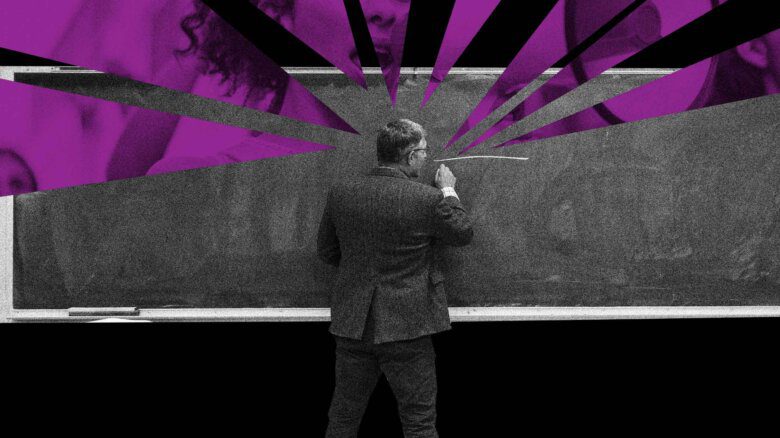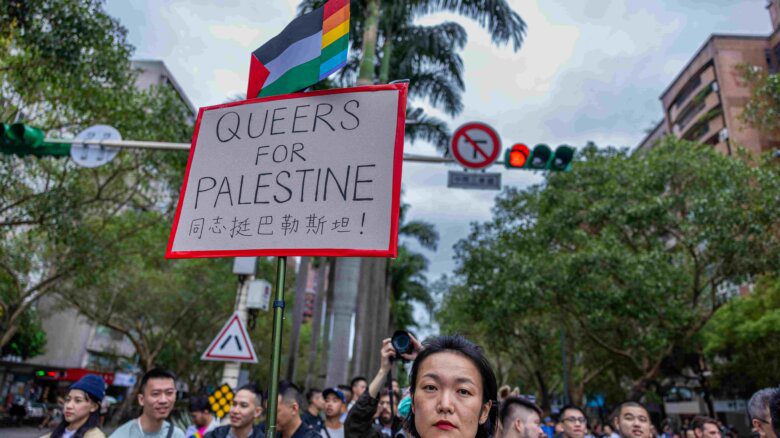A new billboard campaign is sending messages of love and support to LGBTQ2S+ youth in Alabama amid the worst year in history for anti-trans legislation.
The Southern Poverty Law Center (SPLC), a U.S.-based civil rights advocacy group, unveiled two billboards in Alabama on June 6. The display in Birmingham reads “Protect All Families” while another in the state capital of Montgomery declares “All for Love and Love for All.” Each message is printed against a black background and accompanied by a rainbow stripe.
SPLC hopes to signal that LGBTQ2S+ Alabamians and their families are not alone and that advocates will continue to fight on their behalf.
“LGBTQ+ families across Alabama need to know that the actions of the Alabama legislature don’t reflect the opinions of all Alabamians—that they are loved and treasured by their communities here,” Katie Glenn, Alabama policy associate for the SPLC Action Fund, tells Xtra in an email.
Alabama has been ground zero for legislative attacks on LGBTQ2S+ youth in 2022. Amid an unprecedented wave of bills across the country, Republican lawmakers in Alabama introduced at least six anti-LGBTQ2S+ bills this year—including SB 184, which criminalizes gender-affirming healthcare for youth under 19, and HB 322, a bill limiting discussions of sexual orientation and gender identity in K-5 classrooms. The latter was patterned after Florida’s controversial “Don’t Say Gay” law.
Last year, Alabama passed a bill barring trans youth from participating on sports teams consistent with their gender.
Glenn says the billboard campaign is designed to make Alabamians who are not part of the LGBTQ2S+ community “think about the families that are being harmed” by proposals like SB 184 and HB 322. She adds that these bills, both of which have now been signed into law by Republican Gov. Kay Ivey, “fail Alabama’s youth, parents, doctors and schools.”

Credit: Courtesy of the Southern Poverty Law Center.
“In Alabama, the rights of one set of students and parents have clearly been favoured over the rights of LGBTQ+ students and their parents,” Glenn says. “Bills like SB 184 and HB 322 use kids as pawns to solve problems that don’t exist by interfering with their personal lives and family decision-making.”
SB 184 made Alabama the first U.S. state in history to enact a ban on gender-affirming care for minors—although over a dozen states proposed similar legislation this year, including Kansas and Idaho. Under the law, doctors who prescribe gender-affirming hormones or puberty blockers to patients who are under 19 could face up to 10 years in prison and a $15,000 fine.
SB 184 was partially blocked by a judge last month, and the court ruling allowed trans youth in Alabama to access hormones, but kept in place the ban on gender-affirming surgeries. Doctors in the state had testified in court hearings that they do not perform surgical procedures to treat the gender dysphoria of trans minors.
The judge also allowed a provision to remain in place that requires school officials to out students to their parents if they learn a young person is trans.
Alabama groups are not alone in speaking up against attacks on LGBTQ2S+ youth. Billboard campaigns have become increasingly popular across the U.S., with the Ohio-based LGBTQ2S+ resource centre Have a Gay Day launching at least 29 digital billboards across 15 U.S. states earlier this year. The displays bore messages like “You Are Loved” and “Trans Kids Belong.” Florida got its own billboard campaign following the enactment of the “Don’t Say Gay” law in March.
And last year in Alabama, the local LGBTQ2S+ youth space Magic City Acceptance Center launched a giant trans flag billboard with the message “Protect Alabama Trans Kids” to show Alabama trans youth that they are seen and heard. The billboard was the largest Trans Pride flag ever put on display in the state.
Glenn said that groups like SPLC hope to keep showing support, especially with the 2022 and 2024 elections likely to increase scrutiny of LGBTQ2S+ youth. “Alabama politicians are still using the lives of LGBTQ+ Alabamians—and particularly trans kids—as political pawns,” Glenn said. “It’s important that we stay vigilant about this type of harmful rhetoric and push back wherever we can.”


 Why you can trust Xtra
Why you can trust Xtra


